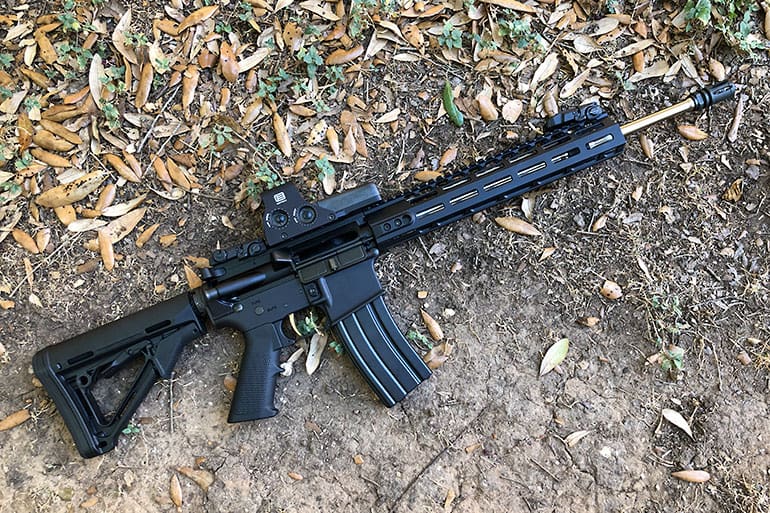Using what seems to be faulty reasoning concerning the “common use” of AR-style rifles for self-defense purposes, a district court in Washington State has denied a request for a preliminary injunction against the state’s so-called “assault weapons” ban.
On September 26, the U.S. District Court for the Eastern District of Washington in the case Banta v. Ferguson denied the request for an injunction because, the ruling said, AR-15s are not weapons that are commonly owned for self-defense and well-tailored for that purpose. Instead, the court ruled that common semi-automatic rifles owned by millions of lawful Americans for self-defense and other purposes are better suited for offensive combat.
In the request, plaintiffs presented evidence that, in fact, self-defense is one of the primary uses of such firearms
“As to why Americans own AR-15s, NSSF consumer survey data shows that ‘[h]ome/self-defense’ is the second-highest reason cited for modern sporting rifle ownership, behind ‘recreational target shooting,’” plaintiffs argued.
However, the court wasn’t buying that argument as reason enough to grant the injunction.
“In sum, the data presented suggests that AR-15s are commonly owned, and some who own them do so for self-defense,” the ruling stated. “However, … most courts analyzing this issue have found commonality is not enough. In fact, most courts that have considered whether the AR-15 falls under the Second Amendment’s plain text have concluded that it does not.”
In its discussion of the second Bruen standard, whether there was historic precedent at the time of the nation’s founding, the court noted that the state’s proffered historical analogs likely weigh in favor of upholding the ban, despite the fact that ownership of common arms wasn’t banned at the time.
noted, without providing any analysis, that the State’s proffered historical analogs—including restrictions on the sale of certain weapons and on the manner in which they could be carried—likely weigh in favor of upholding the ban.
“Similar to the above discussion of Bruen step one, there is little authority to guide the Court’s analysis at Bruen step two,” the ruling stated. “However, what authority exists tends to weigh against Plaintiffs’ challenge. SHB 1240 is a prohibition on the manufacture, import, distribution, or sale of a weapon the legislature deemed dangerous. While no Ninth Circuit case to date has reviewed a similar law, other circuit courts and other district courts in this circuit have done so.”
The ruling then went on to explain its reasoning on the historical precedent question, even though it didn’t make much sense.
“Here, the State Defendants offer a number of proposed analogues to demonstrate that SHB 1240 is within this Nation’s historical tradition of gun regulations,” the ruling stated. “These analogues include restrictions on the sale, carrying, concealment, brandishing, possession, and certain types of uses of certain weapons, in the form of taxes, fines, and criminal penalties. These analogues include some that circuit courts of appeal have found persuasive in comparable cases, such as regulations of Bowie knives and other dangerous weapons.”
The decision is likely to be appealed to the 9th Circuit U.S. Court of Appeals.
Read full article here


